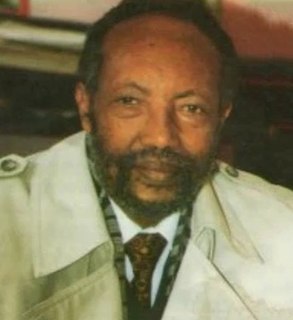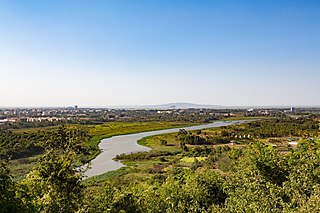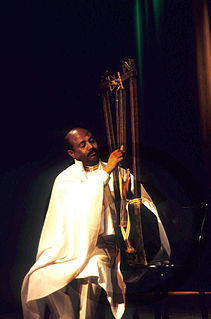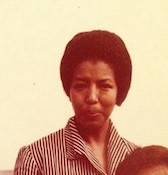Related Research Articles

Addis Ababa, also known by its original name Finfinne, is the capital and largest city of Ethiopia. It also serves as the regional capital of Oromia. In the 2007 census, the city's population was estimated to be 2,739,551 inhabitants. Addis Ababa is a highly developed and important cultural, artistic, and financial centre.

Tsegaye Gabre-Medhin was an Ethiopian poet and novelist. His novels and poets evoke retrospective narratives, fanciful epics, and nationalistic cannonations. Tsegay is considered to be one of the most novelist along with Baalu Girma and Haddis Alemayehu, his books become successful in commercial sales and in even academic thesis. His works solely based in Amharic and English.

Bahir Dar, is the capital of Amhara Region, Ethiopia. Bahir Dar is one of the leading tourist destinations in Ethiopia, with a variety of attractions in the nearby Lake Tana and Blue Nile river. The city is known for its wide avenues lined with palm trees and a variety of colorful flowers. In 2002 it was awarded the UNESCO Cities for Peace Prize for addressing the challenges of rapid urbanization.
Sahle Sellassie Berhane Mariam is an Ethiopian novelist and translator. He has published works in Amharic, English and Chaha.

Saint George Sports Club, otherwise known as Kidus Giorgis, is a professional football club based in Addis Ababa, Ethiopia. They play in the top division of Ethiopian football, the Ethiopian Premier League. Founded in 1935, the club was the first in Ethiopia and was established as a symbol of Ethiopian nationalism and resistance against the occupying forces of fascist Italy.

Alemu Aga is an Ethiopian musician, singer, and master of Begena.
Hawassa University (HU) is a residential national university in Hawassa, Sidama Region, Ethiopia. It is approximately 278 kilometres (173 mi) south of Addis Ababa, Ethiopia. The Ministry Science and Higher Education (Ethiopia) admits qualified students to Hawassa University based on their score on the Ethiopian Higher Education Entrance Examination (EHEEE).
The Baháʼí Faith in Ethiopia began after ʻAbdu'l-Bahá wrote letters encouraging taking the religion to Africa in 1916. Probably the first Baháʼí to settle in the country came in early 1934 and with further pioneers by mid-1934, the first Baháʼí Local Spiritual Assembly of the country was elected in November in Addis Ababa. In 1962, Ethiopia Baháʼís had elected a National Spiritual Assembly. By 1963 there were seven localities with smaller groups of Baháʼís in the country. The Association of Religion Data Archives estimated some 27000 Baháʼís in 2005. The community celebrated its diamond jubilee in January 2009.

Getatchew Haile was an Ethiopian-American philologist widely considered the foremost scholar of the Ge'ez language and one of its most prolific. He was acknowledged for his contributions to the field with a MacArthur Fellows Program "genius" award and the Edward Ullendorff Medal from the Council of the British Academy. He was the first Ethiopian and the first African to win the award.

Abe Gubegna was an Ethiopian writer. His name is sometimes spelled "Abbé" or "Abbie". He published eight novels, five plays, three collections of poetry, and translated several biographies of world leaders as well as other works. Abe mainly wrote in Amharic, but two of his books were written in English.
A number of Ethiopian sign languages have been used in various Ethiopian schools for the deaf since 1971, and at the primary level since 1956. Ethiopian Sign Language, presumably a national standard, is used in primary, secondary, and—at Addis Ababa University—tertiary education, and on national television. The Ethiopian Deaf Community uses the language as a marker of identity.
The following is a historical events of Addis Ababa, the capital of Ethiopia, including its formation prior to 20th century by chronology.
The Imperial Academy was the national academy of Ethiopia, first established by the Ministry of Education and Fine Arts in 1942. It was tasked with preserving the "traditional genius" of the country; among other things, the native Ethiopic script and the literary and scholarly tradition it enabled, as well as the "promotion of research in languages and fine arts".

Ītyoṗya, Ītyoṗya, Ītyoṗya, qidämī was the national anthem of Ethiopia from 1975 to 1992, during the Derg military junta of Mengistu Haile Mariam. The anthem was first performed on Revolution Day on 12 September 1975. When the junta was reorganized in 1987 as the People's Democratic Republic of Ethiopia, the song was retained until 1992. The lyrics were written by poet Assefa Gebre-Mariam Tesema, and the music was composed by musician Daniel Yohannes Haggos.
The Cinema of Ethiopia and the film industry in general is a relatively recent phenomenon in Ethiopia. The Ethiopian film industry is growing, but faces many problems that have prevented it from fully flourishing. Historically live stage theater enjoyed more popularity in Ethiopia, creating a handful of relatively successful stage actors.
Amsalu Aklilu was a distinguished lexicographer of Amharic and a language professor at Addis Ababa University, a major figure in Ethiopian studies. He was born in Dessie, Wällo; attended a local church school and later attended and graduated from Holy Trinity Secondary School, in Addis Ababa. He obtained his bachelor's degree from Cairo University and his doctorate from the University of Tübingen in German.

Senedu Gebru was an Ethiopian educator, writer and politician. In 1957, she became the first Ethiopian woman elected to Parliament.
Daniachew Worku was an Ethiopian writer whose works include novels, plays and short stories. He wrote in both Amharic and English.
Daniel Yohannes Haggos is an Ethiopian-German musician and academic. He composed the national anthem of Ethiopia from 1975 to 1992, Ethiopia, Ethiopia, Ethiopia be first.
References
- ↑ "National Anthems of Selected Countries" (PDF). www.edgate.com. 2004. Archived (PDF) from the original on 30 August 2004.
- 1 2 3 4 "Литературен свят » A » Асефа" (in Bulgarian). Retrieved 30 November 2021.
- ↑ The Daily Review. Vol. 32. Novosti Press Agency . March 1986.
- ↑ ʼakādémi., YaʼItyop̣yā qwānqwāwoč (1996). YaSāyensenā téknoloǧi mazgaba qālāt (ʼengelizeñā-ʼamāreñā) (PDF). YaʼItyop̣yā qwānqwāwoč ʼakādémi. OCLC 39282669.
- ↑ Yumpu.com. "The Ethiopian Millennium - Ethiomedia". yumpu.com. Retrieved 30 November 2021.
- ↑ "Wemezekir: October 2012" . Retrieved 30 November 2021.